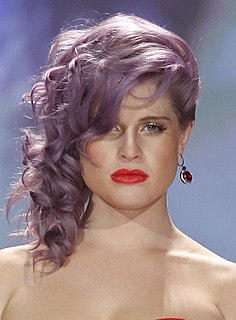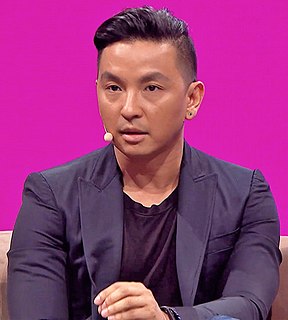A Quote by Patricia Arquette
The truth is even though we sort of feel like we have equal rights in America, right under the surface we have huge issues at play that really do affect women. It's time for all the women in America and all the women that love women and all the gay people and the people of color that we've all fought for to fight for us now.
Related Quotes
Though women may appear equal in some ways, and though we definitely have accomplished a lot, the fact is one in one women will still experience sexual violence at some point in their lives; a mere 17 percent of the U.S. Senate is female; women still only make 77 cents for every man's dollar - and that's not even taking into consideration global issues like sex trafficking or honor killings. We still need feminism, it's just not as easy for people - especially people in an incredibly privileged country like America - to always see that.
I am the dictionary definition of feminist in that I believe women are equal to men. People sometimes use the word for different meanings and it is important to understand that feminism at its core is really is just believing that everyone is equal and should have the same rights. We are all beautiful women, we are still in the fight for equal pay, and we don't need to fight each other.
Women's tennis has been around for a very long time - we're talking about the 1800s. But women's soccer hasn't had such a long history, so now they're right at the beginning of really trying to make things equal. We need to continue not only to advocate for women but to have men advocating for women.
I think in a society where you can't even pass the Equal Rights Amendment, it's very difficult to women make a progress. Incidentally, we are exactly 160 years after the very first women's public rights convention in Seneca Falls, New York, when a handful of women started it all and began the movement to make women equal.
This moment right here, me standing up here all brown with my boobs and my Thursday night of network television full of women of color, competitive women, strong women, women who own their bodies and whose lives revolve around their work instead of their men, women who are big dogs, that could only be happening right now.
Marjan. I have told him tales of good women and bad women, strong women and weak women, shy women and bold women, clever women and stupid women, honest women and women who betray. I'm hoping that, by living inside their skins while he hears their stories, he'll understand over time that women are not all this way or that way. I'm hoping he'll look at women as he does at men-that you must judge each of us on her own merits, and not condemn us or exalt us only because we belong to a particular sex.
I am a fierce advocate for the economic empowerment of all women. In the Congress, I am one of the leaders of an initiative called 'When Women Succeed, America Succeeds.' It is an economic agenda for women aimed at making sure women have equal pay for equal work, paid sick leave, and affordable child care.
Personally I get so much of my inspiration from women in other countries, so I don't feel like American women are the leaders and I don't agree with the notion that Americans can accomplish more or do more. But I do think that what we can uniquely do here in America is mobilize and galvanize a lot of these ideas and resources. It's a war of ideas. We, Islamic women, are very well supported in this country by institutions, academic and nonprofit, that are already in the field endorsing women's rights and tolerance. The women in other communities have been the pioneers in this work.
There are so many issues that impact women. When we talk about prison reform, for example, women were [once] sterilized in women's prisons. When they were giving birth, they were asked to sign paperwork but they weren't even completely conscious of what they were signing. That sounds like something that would never happen in America, but it was happening, not just in America, but in [California], one of the most progressive states in the United States.



































